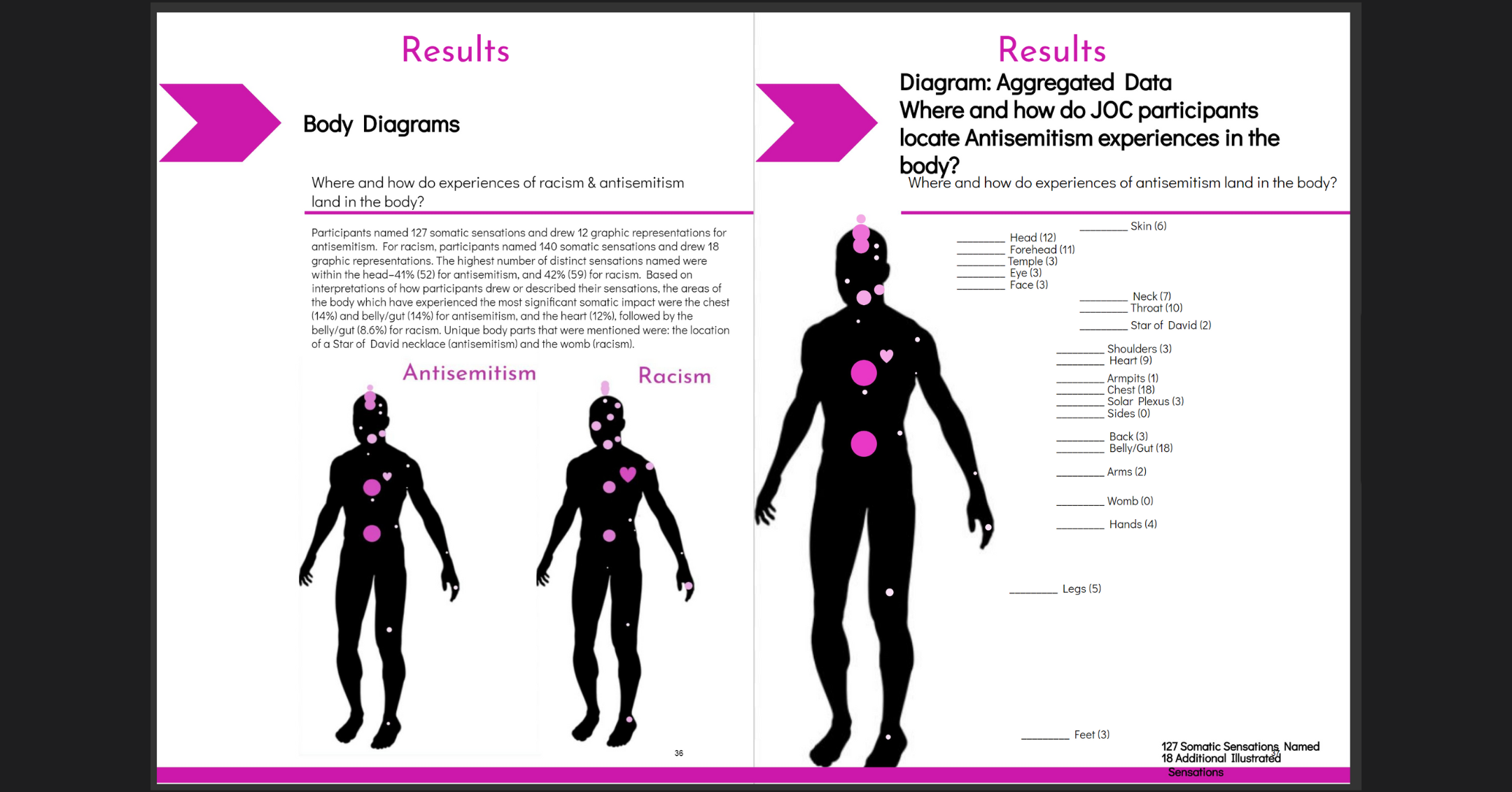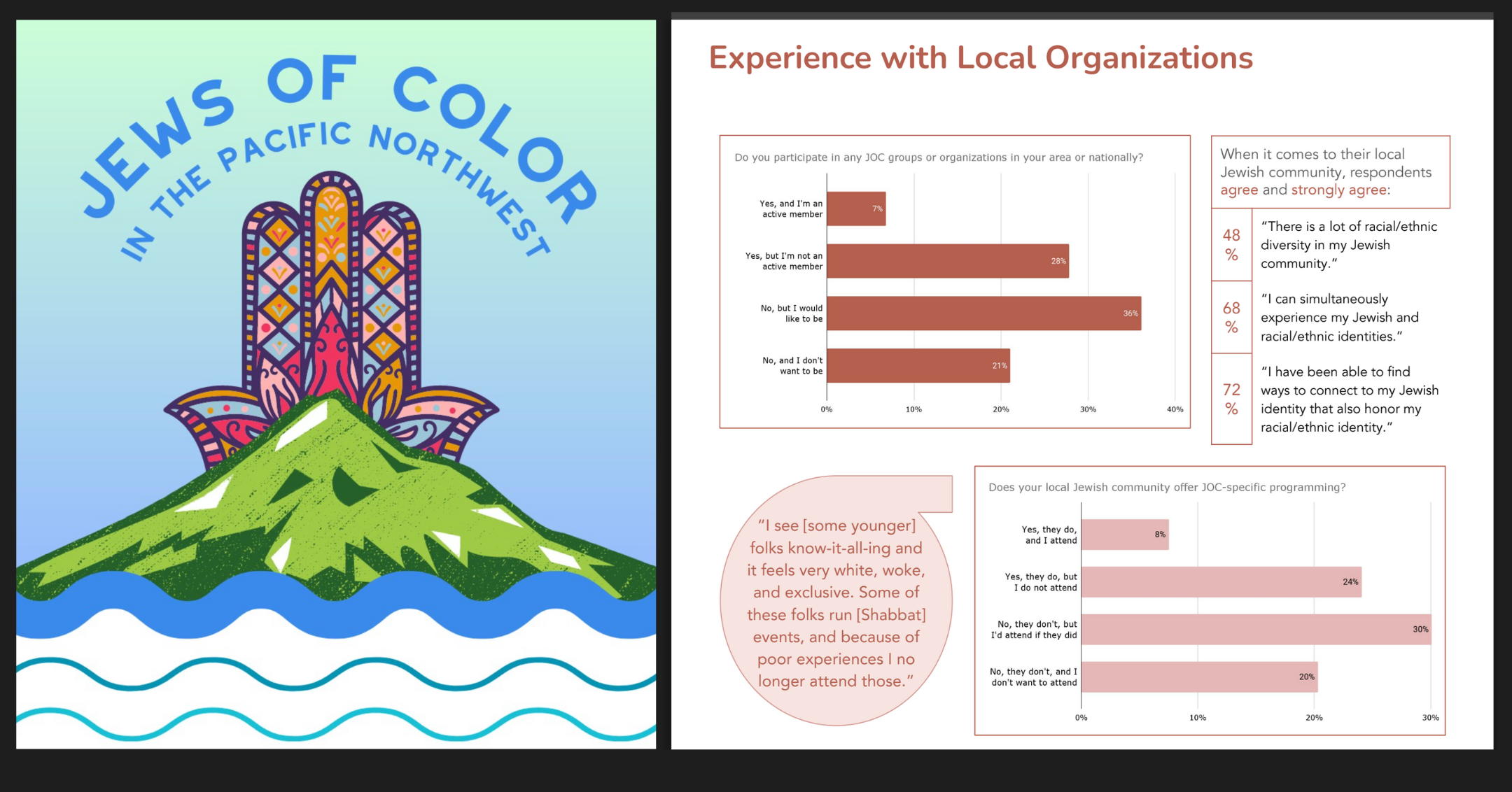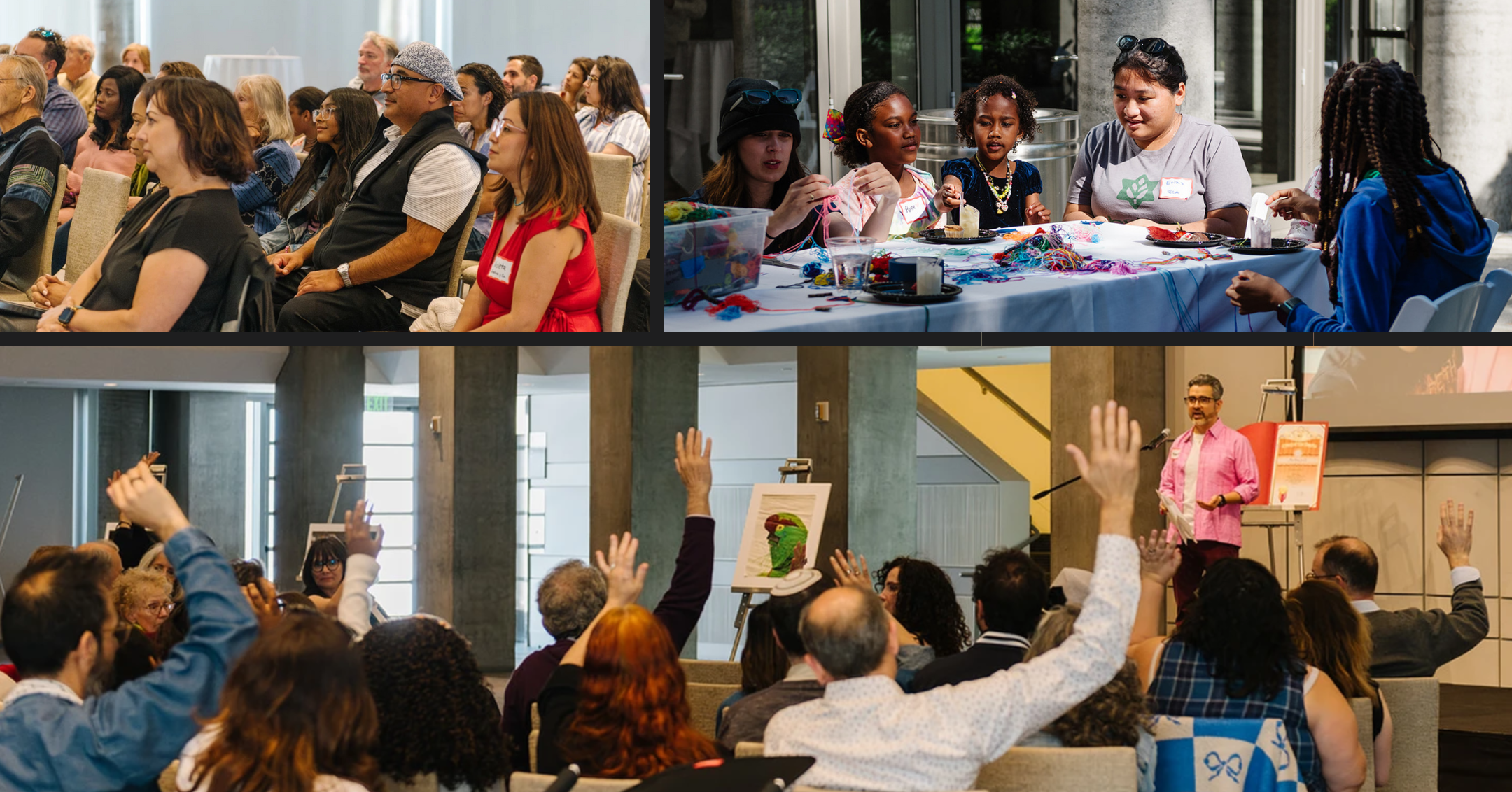In recent years, groundbreaking research on Jews of Color has emerged through the support of the JoCI, enriching our communal understanding of identity and belonging within the Jewish landscape. This article highlights three recently completed studies by our grantee partners that were inspired by JoCI’s groundbreaking studies and made possible by our investment in research and grantmaking. Each study contributes to a deeper understanding of how JoC navigate our Jewish identities, what systemic changes are still needed to foster a more inclusive community, and how our voices can be amplified through thoughtful programming and community engagement.
One key finding from these studies is the profound need for community spaces that reflect and center the experiences of Jews of Color. A study by Mitsui Collective, led by researcher Dr. Imani Chapman and Executive Director Yoshi Silverstein, explores the embodied experiences of racism and antisemitism among JoC. By focusing on somatics, this research reveals how the lived experiences of being a JoC are not merely intellectual but deeply—and cumulatively—experienced in the body. Dr. Chapman reflects on the resilience of Jews of Color, stating, “I am saddened that the need for our resilience, which emerges from the unskilled, unaware, and unjust environments in which we often find ourselves, continues to be so necessary. I am impressed, astounded really, that we continue to be as beautiful, generous, hopeful, determined, and excellent as we are.” The report features unique visual presentations of the data to effectively communicate complex experiences and make the physical sensations described by participants accessible to audiences.

The Cultural Shift study by TischPDX, conducted by Tammy (Metasabiya) Habteyes, uncovers the needs and interests of JoC in the Pacific Northwest. The study’s findings have opened up vital conversations about Jewish engagement in an expanding regional JoC community. Insights from the Cultural Shift Survey revealed that over 72% of participants were in their thirties and expressed a strong desire to connect with their Jewish traditions while building community.

Habteyes is thrilled to see the report’s impact on community programming, including the creation of a Program Manager position at TischPDX to guide the work forward following Habteyes’ transition to a Senior Outreach Manager at Mazon. “It was really nice to see that my colleagues at Tisch really meant what they said and that they really did want to use this report as an asset,” Habteyes notes, expressing her excitement about the hire of Sabina Spicer as the new Program Manager of Cultural Shift.
Sabina Spicer emphasizes how the research is already activating the community, expressing excitement about the chance to implement change based on the findings: “I want to see how far we can take the findings to make people feel seen and heard and welcomed into the Jewish community.” This study illustrates a critical need for community building efforts for JoC in the Pacific Northwest, who are eager to engage more deeply with Jewish life and ritual.
The Shades of Belonging study, led by Dr. David McCarty-Caplan, illuminates experiences of Jews of Color adoptees, shedding light on their unique experiences. This research highlights the complex intersections of identity, belonging, and community for adoptees navigating both their racial and Jewish identities. Dr. McCarty-Caplan’s findings demonstrate that many JoC adoptees experience a sense of isolation, and that connection with others who share aspects of their complex identities can be incredibly healing. “When we find other adoptees that are Jewish, that’s a game changer…It’s a transformative moment,” McCarty-Caplan explains. The sense of isolation is exacerbated by the disconnect between how Jewish communities often perceive themselves as inclusive and the reality that many Jews of Color face exclusion or discrimination. As McCarty-Caplan emphasizes, “Jewish communal organizations need to really invest in taking time and resources to explore racial equity in their spaces.”
The findings from the Shades of Belonging study have directly led to new initiatives such as the Shades of Belonging Festival, informal meetups for Jewish adoptees of color, creating spaces where individuals who once felt marginalized can find connection and belonging. “This work has led me to feel more Jewish than I’ve ever felt,” McCarty-Caplan notes, underscoring how these initiatives activate a deeper engagement with both Jewish identity and community.

Collectively, these three studies conducted by JoCI grantees demonstrate the power of research as a tool for advocacy, ultimately driving tangible impacts on community offerings. As Habteyes articulates, “There are people who want to be leaders in the Jewish community who are Jews of Color… If more organizations with different missions could open up their doors a little bit more to do a better job of meeting people where they’re at instead of just telling them to come to us, I think that could make a massive change—like a huge, massive change.” The findings serve as a foundation for developing programs and initiatives that center their leadership and needs.
Key partnerships also helped strengthen and amplify these studies: The Shades of Belonging study benefited from a deep collaboration with Jewtina y Co., while the Cultural Shift Survey involved a partnership with Tiyuv, which provided valuable evaluation support during its creation.“Tiyuv really just helped to elevate our project,” Habteyes explains, noting that the success of the study was made possible “because everyone was helping out together.” Collaboration across the ecosystem highlights the growing network supporting research by and for Jews of Color, and serves as a call to action for community leaders and organizations to invest in future efforts.
While these studies bring to light the challenges Jews of Color face, they also shine a light on the resilience and beauty within these communities. Dr. Imani Chapman speaks powerfully to this in her recommendations based on the Mitsui study, urging Jewish communities to adopt an approach that recognizes the strengths and brilliance of Jews of Color. Dr. McCarty-Caplan similarly points to the strength and power in building community among Jews of Color in his study on JoC adoptees.
All three studies underscore the significance of research as a central aspect of building a communal field that better serves and reflects the diversity of Jewish identities. The Jews of Color Initiative’s new strategic plan includes a strong focus on extending the impact of thought leadership, including research led by grantees.
We encourage readers to delve into the research reports themselves, as they offer a wealth of data and policy recommendations that can guide community programming and institutional practices. By engaging with these studies, we can collectively work towards a more equitable and inclusive Jewish community that honors the experiences and contributions of Jews of Color.
Read Mitsui Collective’s report on Embodied Experiences of Racism and Antisemitism.
Read the Cultural Shift report on Jews of Color in the Pacific Northwest.
Read and listen to more about the Shades of Belonging study on JoC adoptee experiences.
Support ongoing research by and for the JoC community with a donation to JoCI today.


